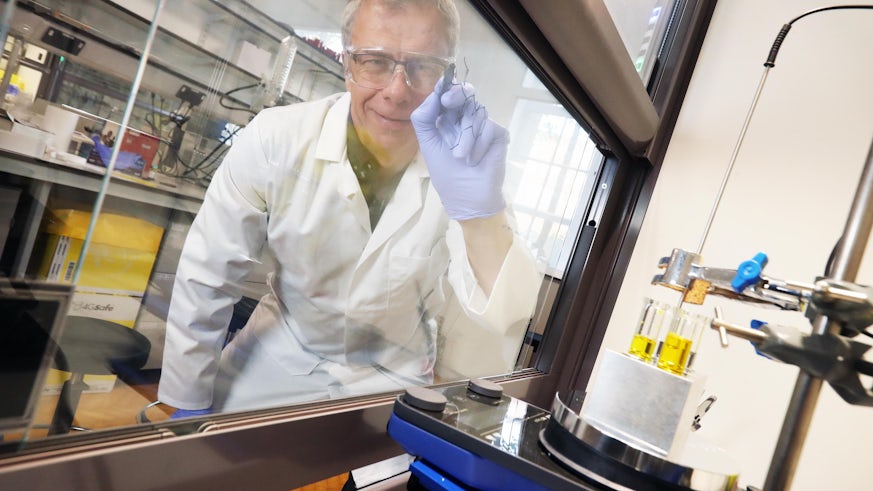Next generation drugs for anxiety disorders
20 May 2019

Scientists at Cardiff University will be one step closer to improving anxiety medications, thanks to a major investment from the Medical Research Council.
Researchers at the Medicines Discovery Institute have received a grant of £3.4 million from the Medical Research Council to fund a project to develop novel drugs for the treatment of anxiety disorders.
The investment will support research to develop drugs that reduce the side effects associated with the benzodiazepine class of anxiolytic drugs.
Professor John Atack, Medicines Discovery Institute Director who received the award, said: “Generalised Anxiety Disorder is the most common form of anxiety and can have a debilitating effect on people’s lives.
“Benzodiazepines are very effective anxiety medications but they cause sleepiness and are often used as sleeping pills. This, and other side effects, means that they’ve been replaced by antidepressants, such as Prozac.
“Antidepressants only have limited effectiveness as well as significant side effects. As a result, around 75% of patients report dissatisfaction with their treatment, and many stop taking their medications or prefer to remain untreated.
“Therefore, it’s vital that we discover better therapeutic options.”
The funding will enable the Institute to further develop their existing research which shows that by altering the function of specific members of the GABAA receptor family of proteins in the brain, they are able to reduce anxiety in animal models without the sedative side effects.
Professor Atack added, “This investment from the Medical Research Council not only acknowledges the need for new medications for anxiety disorders, an area of research where there have been no major advances since early 1960s, but also recognizes the significant progress that we’ve made.
“By developing medicines that focus on specific subtypes of the GABAA receptor, we believe that we’ll be able to impact on the quality of life of patients with Generalised Anxiety Disorder across the world.”